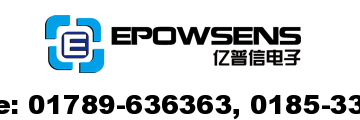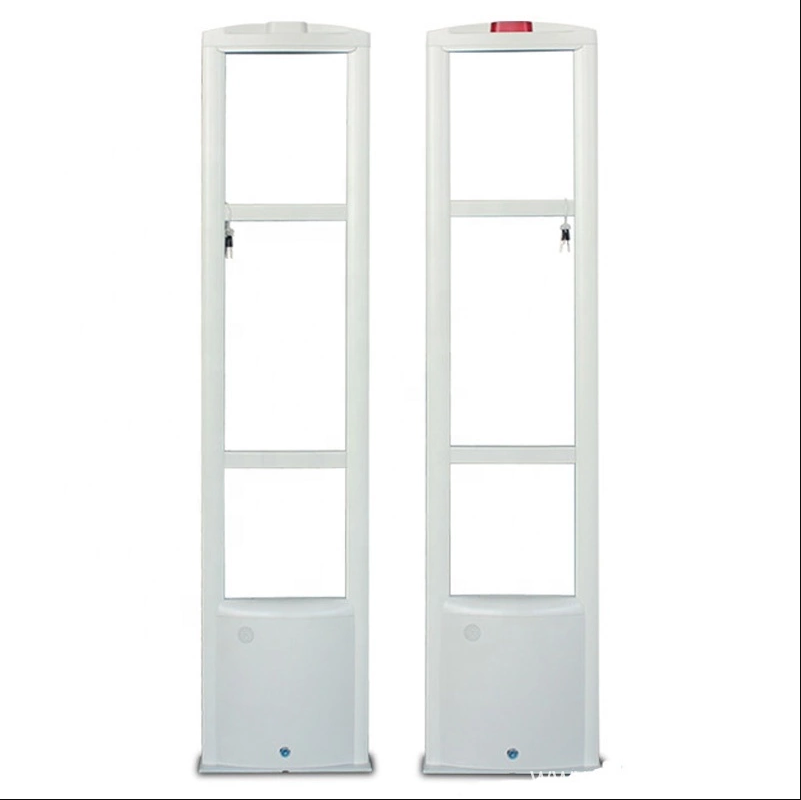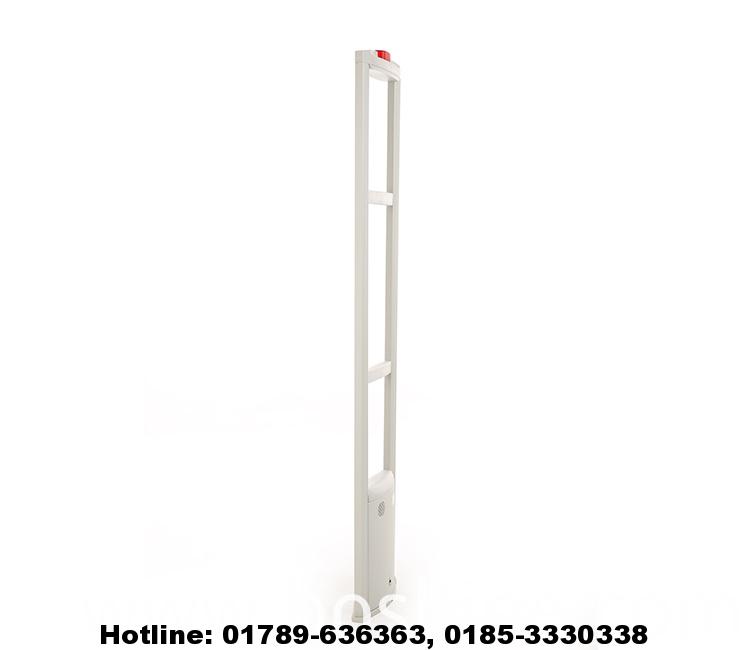Best Security Products Shop in Bangladesh With Best Price
ZKTeco iClock9000-G (GPRS / 3G) Time Attendance Terminal || Hundure RAC-960PEF Fingerprint Time Attendance & Access Controller || Ahuja HBM-60CC Condenser, Cardioid Headband Microphone || Security Mirror || Parking Mirror || ZKTeco uFace800 Plus Face Detection Multi-Biometric T&A and A&C Terminal || Soft Tag (Swing) RF 8.2Mhz For EAS || TOA WM-5325 With WT-5810 UHF Wireless Microphone Sets
Panasonic KX-T7730CN Telephone White
- 1 line x 16 Character backlit LCD
- Caller ID name & number
- 12 Programmable Feature Keys
- Speakerphone
- Forward/ DND, Mute/ Hold/ Flash, Auto Answer/ Auto Redial
৳ 12,500.00Panasonic KX-T7730CN Telephone White
৳ 12,500.00Show ER-66 Megaphone (Hand Mike) 25W with Built-in Siren
- Brand: Show
- Model : ER-66
- Power Output: 25 watt
- Built in Siren
- Comes with Strap and handgrip
- Uses 8pc C size batteries
৳ 4,500.00EAS System AM Security Sensor Anti-theft Gate in Uttara, Dhaka | Best Price
- Product Name: am 58khz gateway system
- Frequency: 58khz
- Color: Grey/white/customized
- Material: Abs
- Size: 143*37*9cm
- Detection Range: 80~200cm
- Electronic Board: DSP Board
- Function: Anti-Theft EAS System Antenna
Call for PricePanasonic KX-AT7730SX Proprietary Telephone Set
- Alphanumeric Display
- Programmable Keys
- Auto Answer Mute
- Voice Call
৳ 5,000.00AM Hard Tag (Midi Pencil)
AM Hard Tag BD
- Frequency:58KHz/66KHz/8.2MHz
- Dimension: Ø55mm (Ø2.17″)
- Detection: 1.50m-2.10m (4.92′-6.89′)
- Color: Black/Gray/White or Customized
- Lock: Three balls clutch, Standard/Super
৳ 15.00AM Hard Tag (Midi Pencil)
৳ 15.00AM Hard Tag 58KHz
AM Hard Tag
This hard tag features a highly sensitive Radio Frequency Identification (RFID) inlay for item-level visibility and inventory management and an AM EAS element for asset protection. The RFID component stores information specific to the protected merchandise for item-level and near real-time merchandise visibility. Source Tagging is available so retailers can receive floor-ready merchandise with consistent tag placement—expediting receiving and selling floor fulfillment.
// Enables near real-time merchandise visibility
// RFID element offers an efficient way to track inventory, while the AM EAS element provides product protection
// Tagging at the point of manufacturing (Source Tagging) helps improve tag compliance and ensures consistent application
// Source Tagged merchandise arrives floor-ready, enabling faster speed to sales floor
Call for PriceAM Hard Tag 58KHz
Call for PriceAM Tag Detacher
- AM EAS Security Tag Detacher
- With sling, easy fix
- Exclusive AM EAS Security Tag Detacher, other detacher can not remove the tag.
৳ 9,500.00AM Tag Detacher
৳ 9,500.00EAS AM Gate 58KHz
EAS AM Gate:
- Slim line design
- Patented aluminium antenna design
- Reliable detection
- Panels can be clear or used for advertising
- Integrated LED light
- Warranty: One Year
৳ 65,000.00EAS AM Gate 58KHz
৳ 65,000.00EAS Gate RF 8.2Mhz
- EAS Gate
- Frequency: 8.2MHZ
- Working voltage: 220V AC(50Hz)
- Working environment: – 20℃ ~ 45℃
- Dimension: 1540×340×90mm
- Material: Aluminum alloy
- Weight: 13kg
- Packing details: 1605×420×19mm
- Warranty: One Year
৳ 42,000.00EAS Gate RF 8.2Mhz
৳ 42,000.00ZEBRA ZXP Series 3 ID Card Printer
ZEBRA ZXP Series 3:
- Resolution: 300 dpi
- Color Print Speed: 180 Cards/Hour
- Monochrome Print Speed: 700 Cards/Hour
- Edge-to-Edge Printing on CR-80 Media
- 100-Card Covered Feeder & 45 Card Output
- Print Touch NFC Tag
- Kensington Security Lock Slot
- Optional Upgrades are Available
- USB 2.0 Connectivity
৳ 75,000.00ZEBRA ZXP Series 3 ID Card Printer
৳ 75,000.00Lanyard Loop and Pin – 6.5″ (170mm)
Lanyard Loop and Pin, Lanyard Pin
The Lanyard Loop and Pin makes it possible to attach security tags to a wider variety of merchandise where one is unable to insert a traditional pin.
Call for PriceLanyard Loop and Pin – 6.5″ (170mm)
Call for Price
Epowsens
Established in 2005, Epowsens, a leading enterprise focuses on RF/AM soft label, RF/AM hard tag, RFID inlay/label, EAS/RFID system, etc. With over 10 years of experience, hundreds of employees and 1.2 billion pieces of annual production quantity, our products has cover a large share of the worldwide market. Our company’s amount of annual exports is 5-7 millions USD.
The core of our service is responsibility. We keep it as our culture, making our industry protects the retailers in the world.
EAS (Electronic Article Surveillance)–A security system for preventing theft in retail stores that uses disposable RF /AM label or reusable RF/AM hard tags attached to the merchandise. An alarm is triggered when walking through detection antenna gate at the store exit if a disposable tag was not deactivated or a reusable tag was not removed at the checkout counter.

epowsens Bangladesh
UHF Inlay HF Inlay RFID UHF label RFID HF Label RFID Tag
RF Label Hard Tag Bottle Tag Ink Tag Detacher Am Label Deactivtor Eas System Safer Pin Lanyard Alarm Tag

EAS anti-theft alarm security system Price in Bangladesh

Epowsens Retail eas rf alarm antenna anti-theft security systems in Uttara, Dhaka-Bangladesh

Retail eas rf alarm antenna anti-theft security systems in Uttara, Dhaka



How EAS Systems Working?
How Anti-shoplifting Devices Work? How EAS devices can detect security tags and security labels?
The most effective anti-shoplifting tools these days are tag-and-alarm systems, better known as electronic article surveillance (EAS) systems. Separately, these are good options. Used together, experts say, they’re almost unbeatable. EAS is a technology used to identify articles as they pass through a gated area in a store. This identification is used to alert someone that unauthorized removal of items is being attempted. According to the Association of Automated Identification Manufacturers, over 800,000 EAS systems have been installed worldwide, primarily in the retail arena. EAS systems are useful anywhere there is an opportunity for theft of items of any size. Using an EAS system enables the retailer to display popular items on the floor, where they can be seen, rather than putting them in locked cases or behind the counter.
New EAS technologies are being produced — not only to reduce shoplifting — but also to help increase sales, lower labor costs, speed inventory, improve stockroom logistics and, one day, to replace inventory record-keeping. But for now, we’ll stick to the role of EAS in battling shoplifting in your imaginary store!
Three types of EAS systems dominate the retail industry. In each case, an EAS tag or label is attached to an item. The tag is then deactivated, or taken from an active state where it will alarm an EAS system to an inactive state where it will not flag the alarm. If the tag is a hard, reusable tag, a detacher is used to remove it when a customer purchases the item it’s attached to. If it’s a disposable, paper tag, it can be deactivated by swiping it over a pad or with a handheld scanner that “tells” the tag it’s been authorized to leave the store. If the item has not been deactivated or detached by the clerk, when it is carried through the gates, an alarm will sound.
The use of EAS systems does not completely eliminate shoplifting. However, experts say, theft can be reduced by 60 percent or more when a reliable system is used. Even when a shoplifter manages to leave the store with a tagged item, the tag still must be removed — something that is no longer as easy as it once was. For example, some EAS tags contain special ink capsules, which will damage the stolen item when forcibly, and illegally, removed. (This type of device is known in the industry as benefit denial — we’ll discuss it more later!). Other popular EAS components today include source tagging, whereby an inexpensive label is integrated into the product or its packaging by the manufacturer.
The type of EAS system dictates how wide the exit/entrance aisle may be, and the physics of a particular EAS tag and technology determines which frequency range is used to create a surveillance area. EAS systems range from very low frequencies through the radio frequency range (see How Radio Scanners Work). These EAS systems operate on different principles, are not compatible and have specific benefits and disadvantages. (That’s why the Consumer Products Manufacturers Association, Inc. is encouraging a “tower-centric” EAS approach that can “read” multiple tag technologies rather than the “tag-centric” models that exist today.












